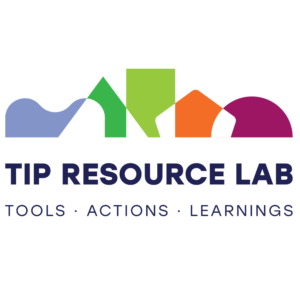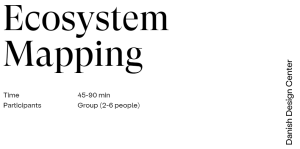Systems thinking is an interdisciplinary approach to understanding how different parts of the systems relate to each other, how systems work and evolve over time and what outcomes they produce. Systems change is an application of that thinking to real world situations.
At its core systems thinking requires a shift in mindset from linear thinking to embracing complexity and interconnectedness. Systems change requires working across organisational boundaries and scales. By applying a systems lens to complex problems, one can help map the dynamics of the surrounding system, explore the ways in which the relationships between the systems components affects its functioning, and ascertain which interventions can lead to better results.
Basic principles
Systems approach deals with complex problems involving:
- Multiple stakeholders
- No definite definitions
- Absense of linear causality
- No optimum solutions
- Liminality
- Uncertainty
- Path-dependency
State of the practice
Systems approaches have developed over the last 75 years and have included general systems theory, dynamic systems theory, cybernetics, among others. However, while other sectors have embraced systems change, it is far from an established field in the public sector. Only in the last ten years has there been a renewed interest in applying systems approaches more rigorously in the public sector. Most importantly, the application of systems approaches relies on how “systems” are defined, which varies widely. This approach and discipline is similar to Strategy Design, Futures & Foresight, and Organisational Design, so you may also want to explore those.
Considerations for use in the public sector
Systems approaches can be a powerful tool in driving purpose-driven transformative changes in goverments as they face complex 21st Century problems. Systems approaches are most successful when an innovation agenda has taken root in a government and there is understanding that more profound change is needed. Attempting systems change requires the understanding that problems cannot be solved by traditional means. In addition, these approaches tend to be time and resource intensive, so sustainable and long-term commitment is needed. Because these approaches often necessitate the inclusion of citizens and non-traditional stakeholders in the policymaking process as well as threats to established power balances, the institutional orientation must shift to a problem/public purpose mentality. While systems change can be driven by bottom up initiatives and proof of concepts, usually top level permission, incentives, resources and leadership support is needed to implement significant systemic changes.
Typical methods and tools
Systems Approaches to Public Sector Challenges outlines the following tactics for systems change:
- People & place
- Dwelling
- Connecting
- Framing
- Designing
- Prototyping
- Stewarding
- Evaluating
Related OECD publications
Systems Approaches to Public Sector Challenges – introduces systems thinking to the public sector and outlines the main tactics for systems change, while presenting in-depth case study analysis of real-life practise.
Systems Innovation: Synthesis Report – discusses innovation and its effects through a systems lens.
Governing Education in a Complex World – analyses complexity in the education system with a focus on a ‘whole of system’ approach.
What to consider when choosing a systems change toolkit
Start with the problem/public purpose. There are variety of systems approaches from soft systems modelling to more quantitative sense-making methods. Depending on the problem, differerent tools and methods should be chosen and sometimes – if the problem is bound and easily understandable – systems approaches may not be needed at all. Selecting the right method, starts with understanding the problem systematically and framing it correctly. If you are dealing with a high level of complexity and uncertainty, considering systems approaches is a good idea.
See Context exploration toolkits
Do you have the window of opportunity to really affect change? If there is a shared understanding of an the need for change, good; however, sometimes urgency for change has to be created. Some tools and methods can help you to do that.
See toolkits that help create shared understanding
What is your role? It is important to have top level cover in dealing with systems change. In most cases complex problems are not bound in one department, organisation or even sector. It is important to reach relevant stakeholders and influence across your direct control. Thus, understanding your own role within the system and the role of other is very important. Building connections and supporting coalitions across the board is vital.
See toolkits that focus on organisational design or include ways to visualise a system or relationships
Look for toolkits with an expansive view of “strategy.” Systems approaches to organisational strategy are less about optimisation, process simpliciation and efficiency, and a linear prescription for reaching specific future targets. Nevertheles, some Strategy Design and Futures & Foresight toolkits can be valuable in approaching a whole organisataion—just be mindful of whether the strategy is useful for complex aspects of the system or problem.
See Strategic Design and Futures & Foresight toolkits
See all systems-related toolkits
Would you like some help?
How well-versed are you with applying systems thinking tools and methods? Do you have experience with applying these approaches in practise? If not, then the language and complexity of the working methods can be daunting. Find help and connect to a systems thinker who has practical experience in addressing public sector challenges. But be aware so that you do not get sucked into applying their favourite method instead of leading with a problem.
Learn about building skills and capacity
Find OPSI network members who are working with systems change
Reach out to OPSI for guidance with systems change
Request a webinar on this topic – top-requested topics will be prioritised







